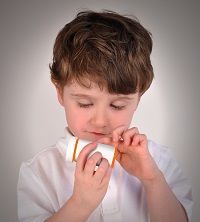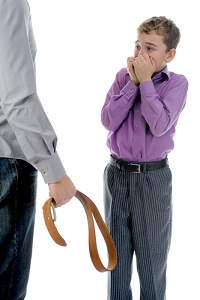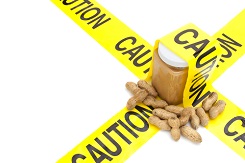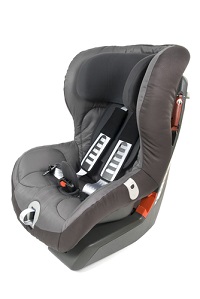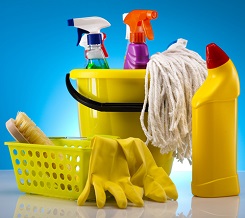 Despite your best efforts to prevent it, your kids will end up sick at some point or another. As unfortunate as this is, it happens to everyone. The key to quickly coming out of this debacle on the other side is keeping the germs from spreading to the rest of the family. Disinfecting the house is one of the best ways to prevent anyone else from contracting the illness, and these 70 blogs are full of tips to clean your house in the event that someone comes down with a sickness that’s easily spread.
Despite your best efforts to prevent it, your kids will end up sick at some point or another. As unfortunate as this is, it happens to everyone. The key to quickly coming out of this debacle on the other side is keeping the germs from spreading to the rest of the family. Disinfecting the house is one of the best ways to prevent anyone else from contracting the illness, and these 70 blogs are full of tips to clean your house in the event that someone comes down with a sickness that’s easily spread.
How to Sanitize Your Home after Illness
Where do you even start when it comes to cleaning the house after an illness? If you can, open up some windows to get fresh air into your home. This air will not only clear out any strange smells that are lingering, it will also help replenish the stale air with fresh air. Grab some rubber gloves, gather up all of the trash and dump it. Disinfect your trash cans, because they can hold germs for hours and even days depending on the germ. For other tips on cleaning your home after your kids have been sick, read these 10 blogs.
- Cleaning the Home after Illness Start by cleaning the items that are the most frequently touched, like door knobs, remotes, cell phones and light switches.
- How to Clean and Disinfect Your House after Illness If it’s sunny outside, lay your pillows and bedding outdoors in the sun to disinfect them.
- Home Survival Skills: Clean Your Home after Illness Replace the air filter in your home to avoid recirculating germs.
- Care and Feeding of Your Child—Cleaning House After Illness Wash any soft surfaces, like stuffed animals, and dry them in a hot dryer to kill germs.
- How to Sterilize Your Home after an Illness Since trashcans will be filled with germ-filled tissues, empty them all out and sanitize them.
- Norovirus Strikes: Cleaning {Disinfecting} After Illness If your baby was the one who was sick, make sure that you clean the changing table thoroughly.
- Checklist for Cleaning Up the Wrath of a Stomach Flu When you’re contending with a stomach virus it’s important to soak or replace the sick person’s toothbrush.
- List of Ways to Clean Your House to Control Illness Invest in disinfecting wipes and constantly wipe down any and all surfaces in your home.
- How Do You Clean Your Home After Recovering from a Cold? After cleaning surfaces make sure you open up the windows to get some fresh air inside.
- Avoiding Germs: Tips to Protect Your Baby’s Health Naturally Once someone who is sick has been in your home you will need to wipe off surfaces and make sure that anything your baby touches or puts in his mouth gets sanitized.
Cleaning Those Forgotten Areas
It’s easy to overlook cleaning some areas of your home; however, those surfaces can hold tons of germs. For instance, the drawers in your refrigerator can hold germs that can make your entire family ill. To avoid this, line them with paper towels. These 10 blogs share tips on how to clean forgotten areas of the home.
- Clean these Overlooked Places After Recovering from Illness Wash your bedding in hot water frequently during illness and especially after it.
- Finally Feeling Better? 7 Places You Should Clean Sanitize places that are frequently touched, like the refrigerator handle, after an illness.
- The 21 Germiest Places You Should be Cleaning Make sure to microwave your sponges on a regular basis to kill germs.
- 10 Areas You Need to Clean Now The professional cleaner in this post points out places to clean that are often overlooked, like the kitchen sink, which can hold more germs than a toilet.
- 4 Cleaning Tips to Get Rid of Germs Disinfect toys and play areas like tables and toy kitchens with a solution of water and bleach.
- 5 Dirtiest Things in Your Home! Window and door tracks often contain bugs and dirt that can lead to colds and other illnesses.
- 10 Germy Places in Your Home (and How to Clean Them) It’s important to remember to clean your vacuum because it picks up all sorts of germs.
- The 5 Filthiest Household Items and How to Clean Them The dog bowl is one of the dirtiest places in your house, so make it a point to clean it often.
- 7 Things You Need to Clean in Your Home Reusable grocery bags need to be cleaned after each trip to the store to avoid contaminating fresh food.
- Spring Cleaning: 11 Germ Traps to Clean Today Make sure you are cleaning your reusable water bottles on a regular basis as they will hold bacteria and germs.
How a Decluttered Home Helps after Illness
While you probably try to stay ahead of clutter in your home it can be a never ending battle. If you create routines for yourself to prevent clutter, though, you can keep it under control. In times of illness you may have a friend or loved one come in to help you, but if your home is filled with clutter they won’t know what to do with it all and may end up stacking it or skipping over those surfaces all together. If you don’t have anyone to come help you and you are trying to make sure the house is picked up, you will find that it doesn’t take long at all to clean the house when there’s no clutter. Take a look at these 10 blogs to learn more about decluttering and how it can save you time and energy.
- One Benefit of Being Decluttered It takes less time to clean a decluttered home, even while you are sick, according to this blogger.
- Is Your Clutter Making You Sick? Stacks of items and other clutter hold dust mites and pet dander as well as other germs that could be making you sick.
- How to Declutter Your Home and Enjoy Stress Free Lifestyle This post has tips on decluttering your home so you have less to worry about if you or your family are ill.
- 4 Easy Ways to Declutter & Organize Your Living Room Many times the living room is where you or the kids lay when they are sick. There will be less to clean and sanitize if this room is decluttered before you get sick.
- Cut the Clutter in the Kitchen Streamlining the kitchen will save you time before and after you are sick, and having a decluttered kitchen makes it easier for someone else to come in and help you if you are sick.
- Save Time Cleaning by Cutting Clutter As you clear away the clutter you will regain time because you don’t have to constantly try to organize and move things around.
- Save Money and Time by Slimming Down Your Life Decluttering means you won’t have as many things collecting dust, making your environment healthier.
- Tips to Declutter This blog post will give you ideas on how to declutter so that you will spend less time and energy cleaning down the road.
- Declutter Your House to Save Time How much of your time is spent searching for things and moving piles around to clean? If you declutter you will be able to clean faster.
- Decluttering and Cleaning the Kitchen While you are cleaning the kitchen after an illness you may want to declutter as you go to make sure that everything is streamlined moving forward.
Cleaning the Kitchen to Avoid Foodborne Illness
Foodborne illnesses can make your family really sick. These types of illnesses are typically contracted because of cross contamination in the kitchen or a problem with food preparation. There are ways to prevent foodborne illnesses at home, though. Two easy tricks: keep surfaces clean and be careful to not to use the same knife with raw meat that you do with cooked. These blogs will explain how foodborne illnesses can happen and what you can do to prevent them.
- Wash Hands and Surfaces Often Make sure you sanitize your utensils and cutting boards thoroughly to avoid cross contamination.
- Preventing Foodborne Illness Make sure the utensils are cleaned to 160 degrees and that you don’t use the same utensils with both raw meat and cooked food.
- ‘Top 5 Germ Hot Spots’ May Spur You to Clean the Kitchen Clean items like the can opener and the gasket on the blender to rid your kitchen of germs.
- Spring Clean Your Way to a Safer Kitchen Properly cleaning your kitchen after you or a member of your family has been ill can prevent transferring those germs back into the food.
- The Latest: How to Protect Yourself and Loved Ones from the Highly Contagious Norovirus Carefully wash fruits and vegetables to avoid passing on these germs to your family.
- Why Should You Disinfect Your Kitchen Sink? The kitchen sink comes into contact with raw chicken and other meats, not to mention other chemicals from fruits, making it imperative to keep it clean.
- When That Nasty Stomach Bug Invades Your Home: A Germaphobe’s Guide When someone in the house comes down with a virus wash everything down in the kitchen with a bleach solution and use disposable dishes until the sickness has passed.
- Kitchen Cleaning Tips—Daily Tasks for a Clean Kitchen Cleaning the kitchen daily will prevent the spread of some germs so that you can avoid leftover germs from reinfecting a family member.
- How to Microwave a Kitchen Sponge to Kill Germs It’s important to continuously kill the germs on your kitchen sponge when cleaning up after a sick person.
- Easy Clean Up Solutions for Every Room The kitchen suggestions in this blog post range from running your sponge through the dishwasher to replacing it often.
Cleaning Up After Your Child Has Thrown Up
Unfortunately, cleaning up after your child has vomited is part of the parenting gig. It’s not fun, but if you use the tips found in these 10 blogs you will be able to make it bearable. One thing to remember is that you need to clean up the carpet immediately because it may stain the carpet if left to dry. The carpet is not the only place that kids throw up, though, and you’ll find tips for cleaning up any and all spaces in these 10 blogs.
- 3 Post Throw Up Clean-Up Tips for Sick Kids Read how you can speed up the process of changing the bed sheets by double sheeting and why it doesn’t soak through.
- Cleaning Up After a Sick Child Scrub the carpet with vinegar to get the smell of vomit out and then use baking soda as a secondary deodorizer once it’s dry.
- Cleaning Up After Sick Kids Keep a grocery sack lined trash can near the sick child so that they can use it and you can clean up without much hassle.
- How to Clean Vomit from Carpet? Talk Amongst Yourselves Follow these step-by-step instructions on how to clean up vomit from carpet.
- How to Clean Vomit from Carpet: Cleaning Tips Learn how using baking soda can help you clean the carpet in this blog post.
- Tip of the Day: Getting Throw Up Out of Your Carpet Check out this simple solution for cleaning vomit out of carpet.
- Vomit on a Couch Using vinegar or baking soda can pull the smell of throw up out of the couch.
- 7 Truths about the Stomach Flu Wash sheets and clothes that have been vomited on right away and start cleaning the carpet immediately because if it dries it’s likely to stain.
- Tips for Parenting When the Stomach Flu Hits This blogger recommends cleaning up everything that touched vomit with a solution of vinegar, water and tea tree oil.
- Cleaning Up Baby Vomit on Your Carpet Use a vinegar solution and a white towel to soak up vomit.
Green Cleaning Products that Work
If you prefer to avoid harsh chemicals when you are cleaning your home there are several alternatives that will work just as well as for killing germs. Vinegar and tea tree are natural solutions that will disinfect surfaces, for example. Take a look at these tips and see if these green cleaning ideas appeal to you.
- Non-Toxic Disinfecting After the Flu Try the recipe on this blog post to create a non-toxic cleaning product that will disinfect surfaces without being harmful to the environment.
- How to Naturally Clean a House After Sickness Strikes You can clean your home sans the harsh chemicals using standard household items.
- Does Vinegar Kill Germs? This blog post answers this question and will give you ways to use vinegar when you are cleaning.
- Natural {and Effective} Alternatives to Disinfectants Find recipes for creating cleaning products for various purposes on this post.
- Cleaning with Vinegar Use a vinegar solution on your door handles to make sure you remove any germs that could reinfect your family.
- Cold and Flu Season: How to Naturally Clean Your Toothbrush Learn how you can disinfect your toothbrush after illness.
- The Benefits of Green Cleaning Learn about green cleaning and how you don’t need to use toxic chemicals to kill flu germs.
- 5 Easy Ways to Clean Green Kill germs in the kitchen where many of the germs live using green cleaners.
- Post Cold & Flu Clean-Up Learn how to use essential oil to help disinfect your laundry after being sick.
- 31 Days to Green Clean: Cleaning with Hydrogen Peroxide Read this blog post to learn how to use peroxide throughout your house to clean the germs after illness.
How to Clean to Prevent Illness
Every time you clean, whether it’s after someone has been sick or not, you are cleaning to prevent illness. However, there’s more to cleaning than just hitting the big areas in the home. These 10 blogs give specific tips on cleaning areas that you might not think about to prevent your family from getting sick.
- Ways House Cleaning Can Reduce Winter Illness Prevent illnesses by killing germs on commonly used surfaces.
- Cold and Flu Season is Here: We Have Home Cleaning Tips to Help You Keep Cold and Flu Germs at Bay Teach the kids the Washy Washy Clean Song to remind them how to wash their hands.
- 3 Ways to Easily Prevent Food-Borne Illness Make sure that you cook your foods to the recommended temperature so that they are safe to consume.
- How to Prevent Illness and Winter Infections {Printable} Learn what steps you should take to clean your home so that your family stays healthy.
- Clean Kitchen to Prevent Illness Disinfect counters daily and clean your sink drain thoroughly once a week.
- Cleaning a House to Prevent Illness Wipe down sinks and counters regularly to kill germs that could make you and your family sick.
- Keep All Parts of Your World Clean to Prevent Winter Illness During the winter make sure that you walk around every day and disinfect door knobs, light switches and other things that are touched frequently.
- 5 Ways to Protect Your Child in Flu Season Clean toys, phones, and other surfaces that may be touched a lot to avoid spreading germs.
- Norovirus and Other Nasties: Can You Stay Healthy Naturally? Keep your house clean by making it a daily ritual to clean surfaces with an antibacterial wipe.
- Lysol’s Healthing! I’m not Just Cleaning; I’m Healthing with Lysol’s Help! There is a difference between cleaning and disinfecting. Make sure that you are disinfecting those areas that are frequently touched and could carry germs.
